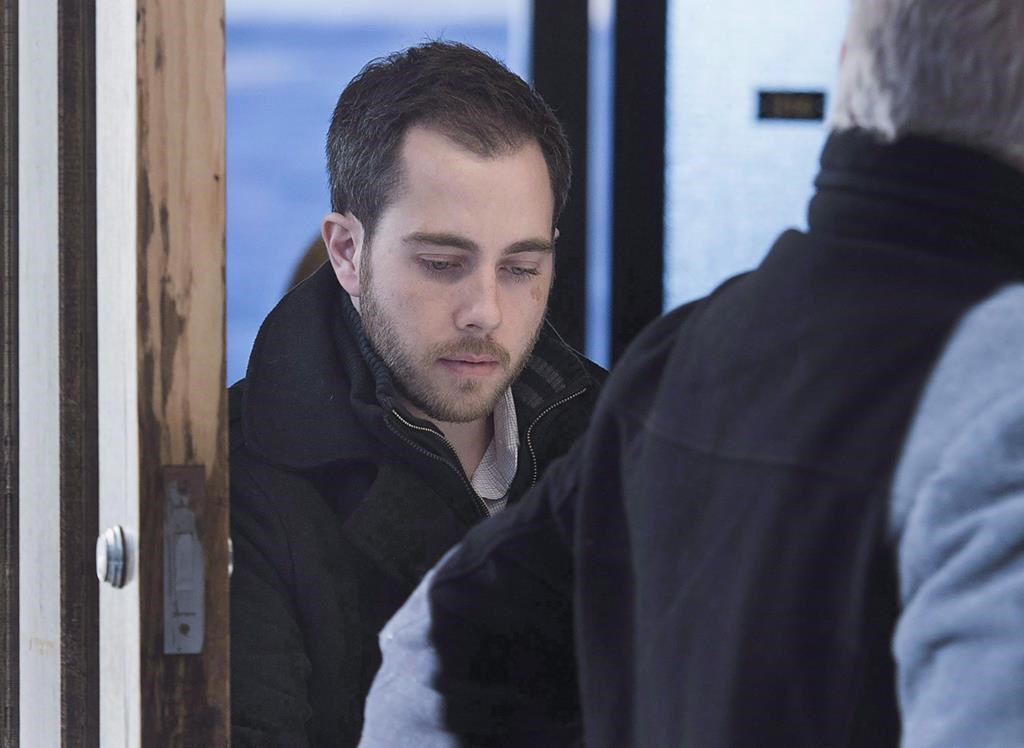On Thursday, the Nova Scotia Court of Appeal announced a judge has made the decision to dismiss the conviction appeal of Christopher Garnier, who was convicted of second-degree murder and interfering with a dead body in the 2015 death of Catherine Campbell.

Justice Duncan R. Beveridge wrote in the document:
“The trial judge set out the correct legal principles about the intersection of voluntariness and the appellant’s right to remain silent and committed no error in his application of the law to his clear factual findings.”
On Sept. 11, 2015, Garnier met 36-year-old Campbell at a bar in downtown Halifax.
He took her back to a friend’s apartment, where he beat her and eventually strangled her to death. He then put her body in a compost bin and hid it around a kilometre away, near the Macdonald Bridge.
Campbell, an off-duty police officer, was reported missing when she didn’t show up for work.
Garnier was picked up by police several days later and confessed during an eight-and-a-half-hour interrogation, to having punched and strangled the victim.
He was convicted in December of 2017, and sentenced the following August.
In December 2019, Garnier appealed his murder charge and sentence of life in prison without chance of parole for 13.5 years.

His lawyer, Roger Burrill, argued Dec. 3, 2019 in court that there were legal errors in his trial that may have impacted the jury’s finding of guilt in December 2017.
These errors were on the part of the trial judge who did not give the jury enough information on the phenomenon of false confessions, and gave them too much information in respect to inadmissible evidence, Burrill said.

Get daily National news
At trial, the Garnier testified he caused the victim’s death “unwittingly during erotic asphyxiation” and that details in his police statement were not true, say the court documents.
Burrill argued that Garnier was pressured into a false confession during this interrogation, in which interrogators repeatedly emphasized the importance of him speaking to them “now.” That resulted in Garnier misunderstanding his legal circumstances, Burrill said.
Thursday’s court decision says Justice Beveridge does have issues with some of the things said by police during that interrogation, but in the overall context, “the trial judge’s conclusion that the statement was voluntary is unmarred by any error, let alone any that could be seen as clear and material.”
In December, Burrill also said Justice Joshua Arnold ought to have given the jury more information on how false confessions are obtained, and instructed them to take that into account in their deliberations.
The new decision document reads appeal judge Beveridge sees “no legal error by the trial judge’s failure to specifically caution the jury about the phenomenon of false confessions.”
Burrill also took issue with the lack of information the judge provided to the jury on post-offence conduct and after-the-fact evidence, and what it can be used for.
In the hours and days after Campbell’s murder, Garnier resumed his routine, attending a birthday party and going back to work. Burrill argued the jury should have been provided an explanation that this conduct was related entirely to his guilt related to his improper interference with Campbell’s body.
Justice Beveridge said in Thursday’s decision he is “unable to agree.”
“Logically, how could his conduct be explained by consciousness of guilt caused by something he had no memory of?” reads the document.

Justice Beveridge has decided to allow the sentence appeal only partially, to amend Garnier’s credit days for time spent in custody following his arrest for an alleged failure to abide by his terms of release, which were not previously included. Beveridge has allowed to amend the 699 credit days to 753 days.
Otherwise, the document says, the judge has decided to dismiss the conviction appeal and other issues raised on the sentence appeal.
— With files from Elizabeth McSheffrey.
Editor’s Note: This article was updated at 8:35 p.m. (AST) on Thur. July 23, 2020 with a correction. The original excerpt of the article contained the incorrect name of the victim. Global News regrets the error.








Comments
Comments closed.
Due to the sensitive and/or legal subject matter of some of the content on globalnews.ca, we reserve the ability to disable comments from time to time.
Please see our Commenting Policy for more.